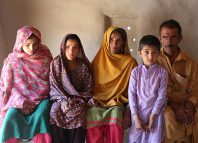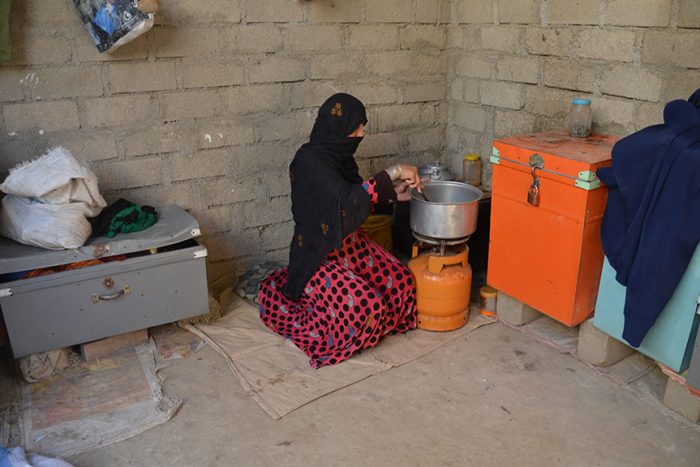Struggles of an Internally Displaced Woman in Afghanistan
In the heart of Mihterlam City, Laghman province, resides Bibi Sabia, a 34-year-old mother fighting an arduous battle to provide for her six children. With five daughters and one son, ranging from 3 to 15 years old, Sabia grapples with the weight of feeding and nurturing her family amidst significant challenges.
Sabia’s life has been marred by tragic circumstances, with the loss of both her first and second husbands. “My first husband lost his life six years ago while serving with the local national security forces in the Alingar district. After his death, I married my brother-in-law, who was also a soldier,” she recounted. The perils associated with her husband’s duties compelled the family to leave their village, Mondal Ziarat Kali, and resettle in the R11 village of Mihterlam district three years ago. Regrettably, shortly before the new regime took over, her second husband also passed away in a conflict in Mihterlam City.
Financial constraints have plagued Sabia since the passing of her husband, making it difficult for her to afford even the monthly rent for their current residence. To alleviate the burden, she has taken up work as a washerwoman, tending to her landlord’s house in exchange for exempting her from paying rent. Despite her tireless efforts, the economic crisis in the region and the prevailing security situation have hindered her from finding stable employment, exacerbating her financial strain.
Sabia’s reliance on community charity and assistance from humanitarian organisations has become paramount for their survival. Nevertheless, the lack of regular meals and financial instability have taken a toll on her children’s nutrition and overall well-being, with days passing when they manage to eat only once or twice, often resorting to inexpensive food options. Additionally, the inability to provide new clothing for her children has led to their dependence on second-hand donations from the community.
The dire circumstances have also impacted her children’s education, with her two eldest daughters being unable to attend school due to imposed restrictions over the past two years. Sabia had once dreamt of providing them with a solid education to empower them for a self-reliant future, but the prevailing challenges have shattered her aspirations.
Bibi Sabia’s plight serves as a poignant reminder of the struggles faced by widows in vulnerable communities, especially within conflict-ridden regions like Afghanistan. Her story emphasizes the urgent need for robust social support systems and assistance programs. Addressing the challenges encountered by individuals like Sabia demands collective efforts from the community, NGOs, and government agencies to ensure that widows and their children receive the necessary support to break the cycle of poverty.
In September 2023, the emergencies team of Community World Service Asia conducted a need assessment in Sabia’s village, subsequently selecting her as a project participant in October 2023 due to her status as one of the most vulnerable and internally displaced individuals in Mitarlam. The project is providing Multi-Purpose Cash Assistance along with hygiene awareness sessions and hygiene kits supported by the German Federal Foreign Office (GFFO), aiming to improve the overall living conditions of the affected households in the area.
“As the winter season approaches, I found myself filled with a sense of despair and concern, recognising our lack of preparedness to endure the cold. I intend to allocate a portion of the assistance to buy essential food items. Additionally, I plan to allocate funds to address my son’s ongoing treatment for his skin condition. Furthermore, I aim to purchase appropriate warm clothing and fuel to keep my home warm during the winter months,” Sabia articulated, expressing her heartfelt appreciation for the timely support.







